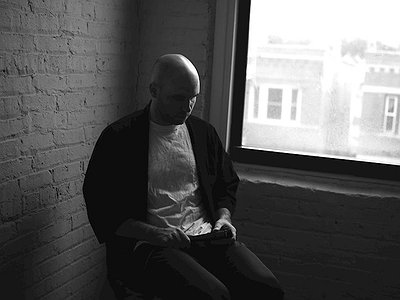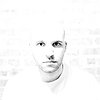Part 2
Collaborations can take on many forms. What role do they play in your approach and what are your preferred ways of engaging with other creatives through, for example, file sharing, jamming or just talking about ideas?
This depends on the project for me. Collaboration does not come naturally to me - I don’t like asking for help. For most of the output under my name, I’ve done everything, but on my next record, I have a bunch of collaborators, people who are much better at specific things than me. A lot of that process involved sending very minimal ideas to my friend Lia Kohl who’s an amazing cellist and composer - she would send something back, and then I’d return to the composition and adjust based on what new things I hear from the added instrumentation and complexity. That has been a cool way to create, and a new process for me.
I am involved in a couple other groups - one being the long-running experimental group ONO, which I kind of manage and handle admin for. The creative process for ONO is predominantly helmed by bandleader P Michael Grego and frontperson Travis, though recently I’ve been handling a lot of the production and mixing. We recently did an audio adaptation of Russell Atkins’ “The Corpse,” which was a new foray for us, and I got to do the production for that, with a lot of help from Shannon Rose Riley who’s been a member since the 80s. But we’re working on new recordings, and often band members will come to my home studio to record vox and other direct-in elements before going to a studio better suited for over-the-air recording.
I also have a couple duo projects - one with my collaborator Robert Stokowy, which borders on musique concrete, though it has classic songwriting elements as well, and one with my good friend Eli Winter, who’s a fantastic guitarist and works with me at American Dreams Records, handling a lot of the distribution work and sometimes press. Both of these projects have LPs coming out in the next 6 months.
Take us through a day in your life, from a possible morning routine through to your work, please. Do you have a fixed schedule? How do music and other aspects of your life feed back into each other - do you separate them or instead try to make them blend seamlessly?
I’ve gotta work on other peoples’ dreams before I get to mine, so my daytime activities are mostly confined to label work - if I finish early, I get to make music or paint. If not, I’ve got to wait until night or weekends.
I wake up between 7:30 and 8 AM, make coffee, feed the dog, and begin computer work, mostly responding to emails - Claire Rousay is usually the first person to text me or vice versa, and then I start up text convos with a number of folks - P Michael, Eli, Devin, etc.
[Read our Claire Rousay interview]
Then I go downstairs to my office, which has my desktop, mailing supplies, and more, to begin mailorder and things that require more computing power. I take the majority of my meetings there, too. Oftentimes I forget to listen to music, actually - I’m at this weird point of sound democratization, so I don’t necessarily need music on - just whatever is happening around me is enough. Conversely, I will often forget music is playing. This is also partially due to the amount of focus I put into each task, which I have to think is somewhat due to being on the autism spectrum - oftentimes everything else fades away if it’s just adorning the activity.
Can you talk about a breakthrough work, event or performance in your career? Why does it feel special to you? When, why and how did you start working on it, what were some of the motivations and ideas behind it?
In terms of a mental breakthrough - establishing priorities - I would have to say it was playing live with ONO for the first time. I was 25, living in Miami, but had been working with the band in a label capacity as co-partner in Moniker Records.
For a lot of my life, I’ve felt as though I were faking it as a musician, and so it took a lot for me to ask P Michael to play guitar in ONO, but there were some New York dates coming up, and I practiced once in Chicago, fit in nicely, and then met up with the band again in April 2016, playing Alphaville, Palisades, and an in-studio session with WFMU. I remember the Palisades show, specifically, was this moment where I realized I had never had so much fun in my life, and that was when I knew I needed to spend the rest of my time here chasing music and performance.
For recording, Sand Like Stardust was the first time I actively learned to record multi-track, and utilizing different types of microphones, pre-amps, and other pieces of gear to track clearly. It’s influenced every recording decision I’ve made since, and opened an exploratory mindset, too.
There are many descriptions of the ideal state of mind for being creative. What is it like for you? What supports this ideal state of mind and what are distractions? Are there strategies to enter into this state more easily?
I do a lot of my “writing” while I run.
I love feats of endurance - learning about people who have done them or trying to do them myself. Something happens when you’re a few miles into running - the scaffolding fades away, and you’re left with gooey, creative stuff rolling through your head. That’s where the magic happens. Though I’ll often hear the beginnings of songs while running, it’s always where I stumble upon the framework of a new full album, figuring out the concepts with which I’d like to work.
For some reason, I am better at establishing narrative throughlines while on the move. I can also get some of these feelings while on the road touring, but running or bicycling is a more primal, direct way to schlep off your baggage and let the mind do its thing, not to mention the physical benefits of exercise!
Music and sounds can heal, but they can also hurt. Do you personally have experiences with either or both of these? Where do you personally see the biggest need and potential for music as a tool for healing?
In Buddhism we’re told that life is suffering, and the only constants are impermanence and change. One of the fundamental goals in my life is making peace with that.
Rather than simply say music & sound heal or hurt, I would say that music can be a vehicle for exploring impermanence. I became interested in Buddhism due to a pronounced fear of death, something I’ve gotten much better with, but during the most acute fear, I stopped listening to music, instead attuning myself to the lessons of Buddha ancestors and also the sounds of the natural world. Everything we experience is in a constant flux, and the only way I can make sense of life’s finality is through establishing or considering that everything is everything.
Ontologically, we are one organism, functioning as a whole. The sounds that line our existence are the sounds of things birthing and dying at all times. I hesitate to say that paying attention to those things is healing, per se, but they do frame the whole of birth, life, death as something beautifully sonorous.
There are, of course, also examples where I listened to a fuckton of Nine Inch Nails after a bad break up or when I put Sunn o)))’s Life Metal or Midori Takada’s Through the Looking Glass on to coax me down from anxiety, and those are quite special, too.
There is a fine line between cultural exchange and appropriation. What are your thoughts on the limits of copying, using cultural signs and symbols and the cultural/social/gender specificity of art?
Intention, respect, and permission are necessary for cultural exchange. Learning about other cultures and other people is one of life’s great pleasures - humans are meant to build with each other. Sharing knowledge, wisdom, and experience is inherently a good thing, even a necessary thing, but when someone else’s culture or identity is another person’s window dressing, something is wrong.
Our sense of hearing shares intriguing connections to other senses. From your experience, what are some of the most inspiring overlaps between different senses - and what do they tell us about the way our senses work?
As I mentioned before, music is a continuation of my role as a storyteller, and these days it’s as easy to experience or inhabit stories with the eyes as the ears - paintings, sculptures, movies, books. I doubt that any of us balances our senses the same way, though.
For example, I am not extremely interested in food - I am a bit of a cave man - food is for substance rather than pleasure. But books are sacred to me, and are as much a part of my personhood as anything else. So perhaps I value or am more in tune with sight than taste.
I suppose the tactile sensation is also important as running and exercise are so central to me, though that is tricky as I’m not sure which sense is used in paying attention to your body. Considering internal pressure, fatigue, oxygen levels, the state of muscles - is that touch / tactility? It must be an overlap of many senses, done subconsciously, constantly.
Art can be a purpose in its own right, but it can also directly feed back into everyday life, take on a social and political role and lead to more engagement. Can you describe your approach to art and being an artist?
Since discovering Zen, I have tried to explore two things - one, the interweaving of life, as that idea, that meditation allows me to maintain some sort of homeostasis; and two, infinity.
I listen frequently to this podcast called the Zen Studies podcast, which has episodes once a week - oftentimes the teacher Domyo Burk will give dharma talks based on environmentalism, political action, and more. As with any religion or school of thought, there’s a way to take Zen thought as an agreement to lie down, do nothing, but I take the belief that “everything is everything” as a charge to consider and benefit life wherever possible, whether that’s through social justice or helping someone unpack their groceries. It’s a constant pruning.
Obviously my most selfish mind - if I see someone who needs help - is thinking “No, you don’t need to help them - just get home,” but when you go and help the person anyway, you are establishing a habit, and slowly changing yourself to be that better person. It’s like a bonsai tree - you cut off the branches that eschew the correct form, you guide new leaflings, you water, you rid the plant of insects.
My approach is somewhere here, and my pieces of work are reminders for myself to be a better person, to engage with nature and society responsibly, and to keep on my spiritual path towards betterment and the infinite.
What can music express about life and death which words alone may not?
Nothing.






